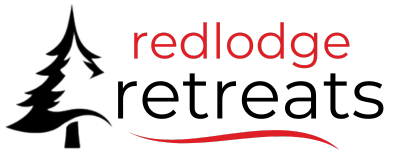Not on the Same Page with Your Team – Try This

Building a high performance team involves collaboration and teamwork, both of which can be taught and developed; and while building a successful team may be challenging at times, these keys tips will assist you.
A common goal
High performing teams work to achieve the same, clearly-stated goal. People are doing different things but they all contribute to a common objective or objectives. If there’s no common goal, you run the risk of team members not clearly understanding what they are working towards, which can be demotivating. Teams also need measurable performance indicators so they can evaluate their progress towards their goals.
Role clarification
People in the team need to understand their roles. The Belbin model is a popular, effective way for people to identify the roles they play, and to ensure you have a team that is diverse and able to achieve its objectives.
Clear priorities
It’s not enough to know the roles and tasks. The team needs to know what is important. The priorities may be established by management, or in the case of a self-directed team, by the team members themselves.
Build trust
Team members must trust each other. They need to be able to rely on each other when it comes to risk taking and accountability, they need to be loyal, they need to share information (personal and business) and they need to be confident that each team member will do their ‘bit’.
Open communication
Encourage people to give open and frequent feedback about how the team is working together and progressing, and to voice ideas on how things can be improved. Team members should be able to express their thoughts and feelings about the team, focusing on work behaviors. Team members listen to each other and don’t complain about their teammates behind their backs, or gossip. Problems aren’t hidden – they are dealt with – leading to a better overall result.
Autonomy and responsibility
If a team is micro-managed, people may become resentful and contribute less. High performing teams are responsible for their outcomes. Each member needs the authority to do their tasks, and they need to take responsibility for these if the team is to achieve its potential.
Diversity
High performing teams value diversity. People come from different backgrounds and have different skills and abilities, adding richness to the team. Given the diverse customer base of most organizations, diversity among team members helps the team understand and serve its customers.
Conflict
High performing teams manage conflict. Team members know how to resolve disputes and disagreements. They face up to conflict, manage it and learn from it.
Build on strengths and learn from mistakes
A high performing team considers the strengths of its members and uses these strengths to achieve its goals. It focuses on building them to improve individual and team performance. Such teams evaluate their performance to see what has and hasn’t worked, and to develop strategies to deal with the issues more effectively in the future.
Mutual support
In successful teams, team members support each other, whether it’s taking on extra tasks, temporarily increasing workloads, learning a variety of jobs to increase flexibility, or just pitching in when a problem comes up.
Celebrate
Successful teams celebrate. The team’s achievements are important. Take the time to celebrate and reward them – it strengthens the team. It might be lunch, it might be a day out of the office, it could be a bonus – but do it with ceremony, do it publicly and have fun.
Bring your team to our private high ropes course located between Calgary and Red Deer and get your entire team on the same page, pulling on the same end of the rope.
Red Lodge Ropes Course, a division of NexLevel Challenge, works with businesses that share our mindset, philosophy, and values of Connection, Fun & Excellence. Our powerful experiential training programs create high performance teams.
Give us a call 1.866.840.2840, pop us an email or visit our website Red Lodge Ropes Course.
